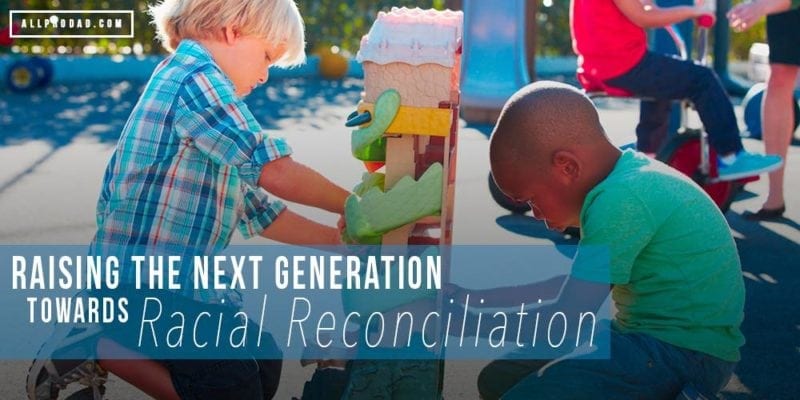Racially charged events have left many of us parents wondering: What do we tell our children? With the events leading to the recent killing of George Floyd and the subsequent protests and calls for action, we wonder how our kids are processing all of this. Just like sex and relationships, race can be a difficult topic to discuss with our children. But it is vital that we approach it intentionally, with grace and truth. Our job as parents is to teach them how to properly view themselves and others.
I believe God can redeem any upbringing, but the dining room is as important as the courtroom in administering justice. What is said about race there and who is invited to sit there will do more to form your kids’ opinions than any after-school program, Sunday school class, or even the internet. At times, parents may need to be intentional about fostering their own relationships with couples or coworkers of different backgrounds. Our children need to see these tangible, real friendships. When we teach them about race, we need to do these 5 things.
Be honest.
In 2014, my daughter walked in as I was watching coverage of police subduing Eric Garner and the protests that ensued in New York—a situation not unlike what just happened to George Floyd. My then 5-year-old daughter asked, “What are they doing to that man?” This was a teachable moment. I explained in simple terms what was happening and that this man had died and people were upset. While we must exercise discernment in what we tell our children, it is important to be honest about the world around them.
Be careful with your verbals and nonverbals.
Our children watch our nonverbal reactions to race as well as hear our comments. Be mindful of both because they are equally destructive. Racial jokes, generalizations, and stereotypes inevitably influence their expectations as they grow older and form the bias that sometimes creates the outcomes we witness on our television screens.
Check your own attitudes.
We all have specific lenses and, as humans, we will struggle against our own pride, prejudice, selfishness, and racism. Before we can hope to raise a loving generation, we must first identify and be remorseful of our own missteps in this area. Because we are human, this will be a continuous process as our sensitivity heightens and our shortcomings are revealed.
Pray with your children.
After the protests in Baltimore several years ago, my daughter prayed for forgiveness for all the people involved for months and months. (We actually had to tell her it was OK to stop praying about that particular situation!) I believe this issue is one God cares about and we need His power and wisdom in confronting and solving it.
Teach them diversity.
Teach them about contributors to our country who came from all backgrounds as well as those who courageously stood in the gap even when it may have been unpopular. This will encourage them to stand for what’s right, even if their group does not. As important as race and culture are to our identity, as for me and my family, our allegiance is to God and what He says above all else.
Sound off: What do you think is important to teach kids about race?
Have you found yourself wanting to talk to your kids about race relations, but you’re not sure what to say or where to start? It can be a confusing and challenging topic, so we created a resource to help you written by Clyde Christensen and Tony Dungy. Click here to sign up for our Race Conversations For Families resource.










Huddle up with your kids and ask, “Have you ever seen someone who looked different from you? What did you think and feel?”